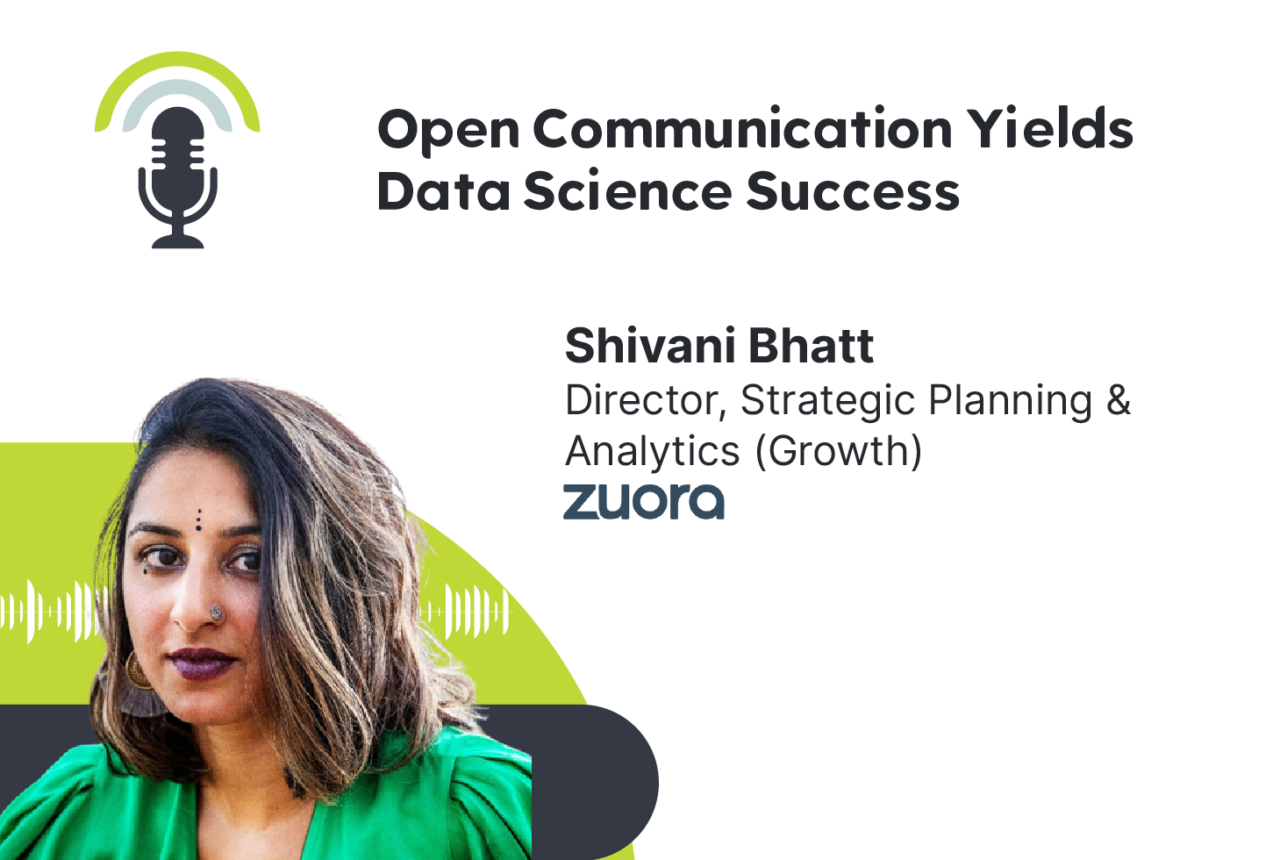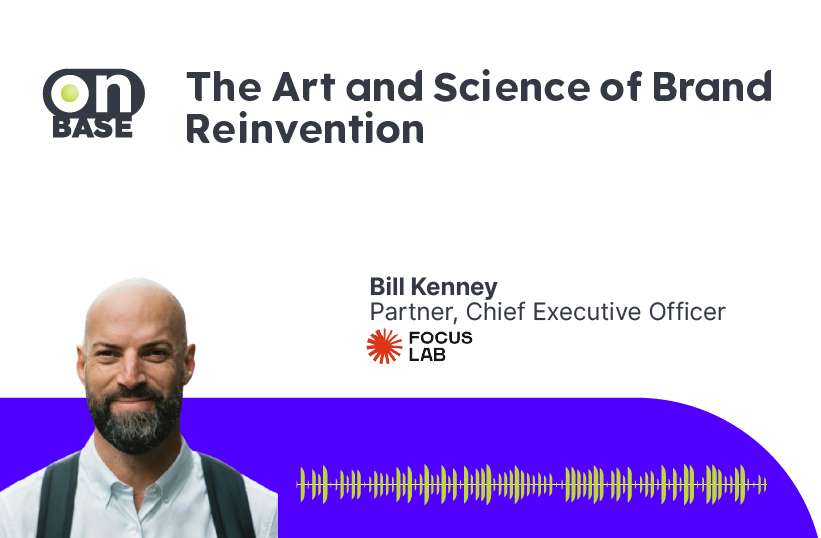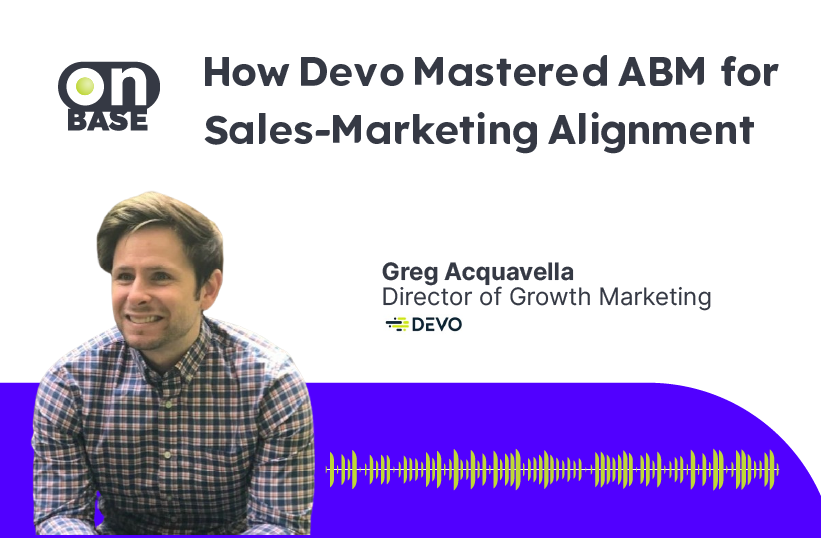
Open Communication Yields Data Science Success
Shownotes
This episode of Sunny Side Up features Shivani Bhatt, who has made the art of integrating data science across marketing team functions. In her role as Director of Analytics at Zuora, she is laser-focused on the integration of data analytics, strategic marketing, and growth operations. She shares insights into the role metrics have to play and where they inevitably fall short if all stakeholders are not brought along throughout the process. Shivani believes the tools and insights data science affords very often originate in the service of marketing functions but ultimately, as organizations scale and evolve, can play a centralized role across the enterprise. You’ll hear about some of the people who have influenced her development as well as recommend reading for anyone who shares her passion for all things marketing: demand generation, performance metrics, and growth strategy.
About the Guest
Shivani started in boutique consulting and then moved to Demand Generation at S&P Global. During her time there, she launched the company’s first Marketing Ops team and specialized in Nurture track builds and optimization in Marketo. After getting her MBA at CU Boulder, she built the Intelligence Operations team at Marketo and Adobe upon the Adobe acquisition of Marketo. She is currently the Director of Strategic Planning & Analytics at Zuora.
Key Takeaways
- Shivani shares her journey from independent boutique consultant to focus on demand generation and marketing opportunities at Standard & Poor’s, Marketo, and Adobe. Today she is leveraging a deep understanding of data analytics in her role as Director of Strategic Planning & Analytics at Zuora.
- Marketing analytics should be considered foundationally in the context of what stakeholders need and decisions that will be based on the metrics provided.
- Highlights of the mentors who impacted her career.
- What lies ahead for data analytics and its interplay with marketing functions.
- Collaboration in the realm of data analytics is essential, which means ensuring everyone (not just the data scientists) understands the tools and concepts.
- Ultimately data science doesn’t have to remain the exclusive purview of marketing and may well evolve to become a centralized, stand-alone department serving multiple teams with a spectrum of business problems.
Quotes
“The data foundation is everything. Without it, you’re not doing anything. You’re not reporting; you’re not creating analytics tools.”
Highlights From the Episode
Shivani shares her thoughts on the role of analytics.
Marketing analytics is supposed to be in the service of demand generation. It’s all about supporting metrics that inform marketing and other corporate decisions. Problem statements are critical, and it’s essential to understand precisely what decisions marketers will be making with the analytics provided.
Wish list for marketing analytics.
It’s a constant challenge to rein in “data brain,” getting stuck in the language of analytics. Be vigilant about rendering complex concepts and tools user-friendly for stakeholders who are not as steeped in terminology and practice. So understands first-hand how intimidating it can be. Bringing empathy to the table enables teams to ask questions that will ultimately ensure overall success. It unclogs the bottlenecks that often occur because of poor communication.
Collaboration among data engineers and marketing stakeholders is essential.
In the realm of strategic planning, data analytics is everything. Understanding the engineering and infrastructure aspects is important, but those aspects can be done in partnership. In order to scale organizationally and truly solve business problems, marketers also have to be at the table. It’s not just that they have an opinion but also have valuable insights to offer in building effective data sets. The effort has to be synergistic and incorporate feedback from across teams.
Data science doesn’t have to be owned exclusively by marketing.
Marketing doesn’t own data science; ultimately, it can perform a centralized function that serves the entire organization. That being said, data engineering might start out more closely aligned with marketing teams simply because marketing analytics and strategic planning functions do need to marry closely. There are often specific marketing data sets that include non-numeric variables and other complex problems to solve – in which case it’s extremely valuable to have a dedicated expert familiar with those stats. It varies from company to company and depends on the needs at hand.
Recommended Reading/Resources
- “Subscribed: Why the Subscription Model Will Be Your Company’s Future – And What To Do About It,” by Tien Tzuo
Shout-Outs
- Bharath Venugopal – Director Business Operations & Analytics at Adobe
- Elizabeth Glover – Senior Director, Marketing at Zuora

Sunny Side Up
B2B podcast for, Smarter GTM™



